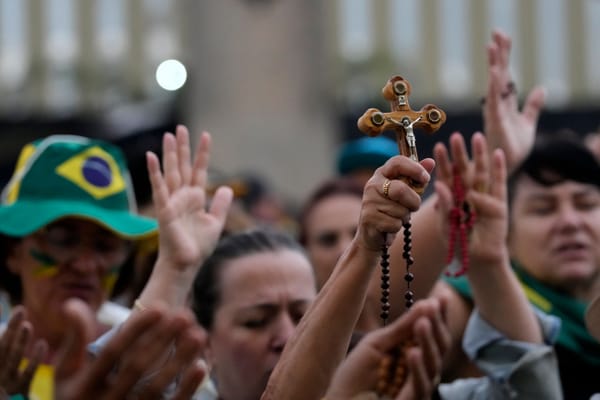Luiz Inácio Lula da Silva, the former trade unionist and standard bearer of the Brazilian left for decades, will be president for a third time. This cements his place as the country’s dominant political leader of the 21st century, second in significance only to former dictator Getúlio Vargas in all of modern Brazilian history. It was a remarkable comeback in an election that no challenger other than Lula could likely have won.
Incumbent Jair Bolsonaro outperformed most polls in both the first and second rounds. Surveys taken before the first vote predicted a Lula blowout, but the final margin of victory on Sunday was a mere 2.1 million votes, or 1.8 percentage points. Beyond the presidential contest, the Brazilian right fared better than expected across the board, building up a strong congressional bench and winning the governorships of the three largest states. Divided government portends a deepening of the social and ideological fractures on display in recent years.
Lula entered politics as a radical upstart, but he now returns to office as an agent of restoration. His appeals to the thriving economy and redistributive policy in his previous time in office allowed him to garner support from the poorest Brazilians, as well as the establishment. Though this broad coalition propelled Lula back to high office, his modest aims—to defend democracy from those openly nostalgic for dictatorship, to rebuild the state capacity to which Bolsonaro laid waste, to alleviate hunger—are emblematic of the shrinking of the left’s political horizons.
By contrast, the unanticipated vigor of the Bolsonarista right has resulted in part from its apocalypticism and willingness to threaten a rupture with the status quo. For the moment, though, Bolsonaro has been unable to capitalize fully on the insurgent energies he has conjured up. Contrary to legitimate fears of a contested result or even an attempted coup, he accepted defeat, though only after maintaining public silence for 45 hours. When he surfaced, it was only to give a two-minute news conference in which he couldn’t bring himself to concede; that was left to his chief of staff, who promised the transition would begin promptly.
